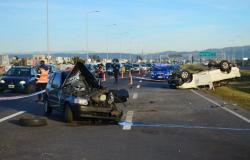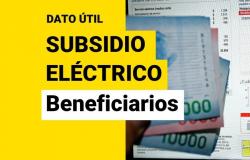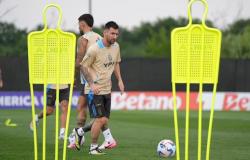
This is an instance of professional teaching development that aims to provide better tools and, in turn, deepen teaching by acquiring specific and general knowledge about the EPJA modality with the possibility of developing the necessary skills to reflect and act within the socio-educational field. .
The Directorate of Permanent Education of Youth and Adults (DGE), together with the Institute of Higher Education 9-029, will offer a Higher Level teaching postgraduate degree in Permanent Education of Youth and Adults with a perspective of protection and promotion of rights. The study plan is two years long, with a workload of 400 clock hours. The course modality is distance learning and is scheduled to begin on August 3.
The proposal is intended for supervisors, directors and teachers of all levels; orientation team members; teachers of the Youth and Adult Education modality and teachers of the Deprivation of Liberty Education modality. Those interested can register through the QR code or by entering the following Registration form.
The director of the Permanent Education modality for Youth and Adults, Erico Arias, expressed that, “this post-graduate degree arises from a requirement by supervisors and directors and is focused on training teachers with different tools and ensuring that they are qualified to address the needs that exist in the modality.
«This implies professionalizing and training the teacher in a modality that is heterogeneous, for us as a Modality it is very important to provide this specialization due to the characteristics of the students. Without a doubt, our main objective is that young people and adults can complete their studies and can do so from a place where they feel content since they are socio-educational Centers, that is why this year this professional and educational training is launched. “This way we seek to enrich the teachers who work in this area,” stated the Director of Youth and Adults.
Specialization Objectives
– Develop institutional projects, as well as teaching proposals, that address and respect diversity, constituting opportunities to enhance the construction of learning and promote the development of capabilities of EPJA students.
– Design and develop contextualized and situated teaching and evaluation proposals for the construction of knowledge with a problematizing approach to the Lifelong Education of Youth and Adults that enable human and social development with a comprehensive perspective based on human rights.
– Recognize students as historical, social, political and cultural subjects; distinguishing and valuing the characteristics of the learning subjects of the EPJA modality, to give true meaning to educational practices, from a framework of promotion and protection of rights.
– Develop the necessary capacities to actively participate in the collective construction of the socio-educational project of the Center with an integrative perspective and respectful of diversity, aimed at the full realization of the human condition, making special anchorage in the institutional, inter-institutional and community partner, and understanding that their teaching role is oriented to the transformation of conditions for the promotion of human dignity.
– Establish the registration and systematization of experience as a privileged tool to accompany evaluation and self-evaluation processes.
This instance of teacher professional development seeks to strengthen the training trajectories of institutional managers and professional educators who participate, work and wish to work in the field of youth and adult education.
Through the construction of theoretical contributions from research processes, the design and implementation of institutional and classroom management proposals, as well as the development of intervention projects with educational alternatives that promote and improve educational processes in each of the student contexts.
Consequently, it seeks to impact the planning, teaching and evaluation practices of the EPJA subjects, promoting the continuous improvement of their practices in dialectical processes of reflective analysis, which implies relating the knowledge and knowledge constructed personally and collectively with experiences. at the institutional, community, regional and national level.





